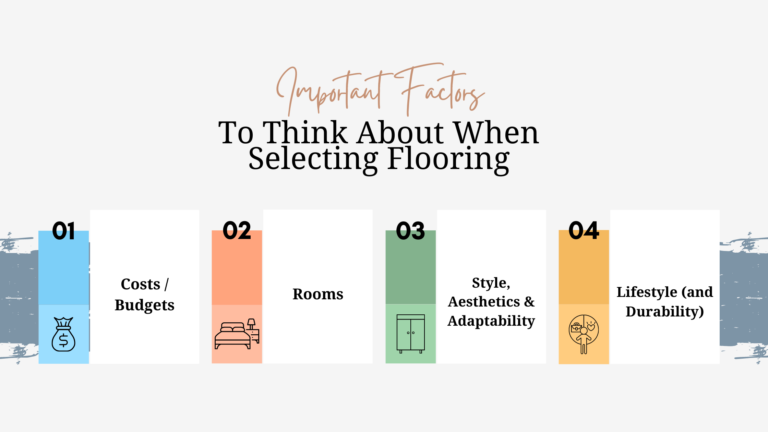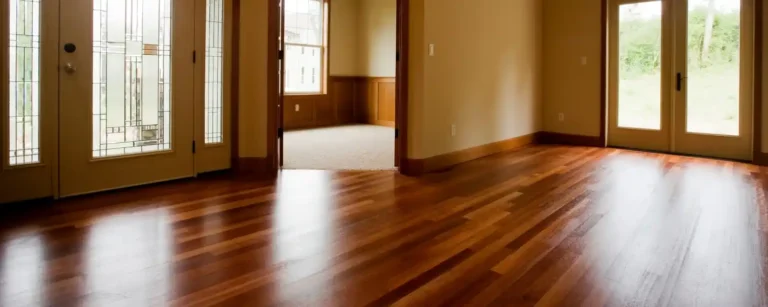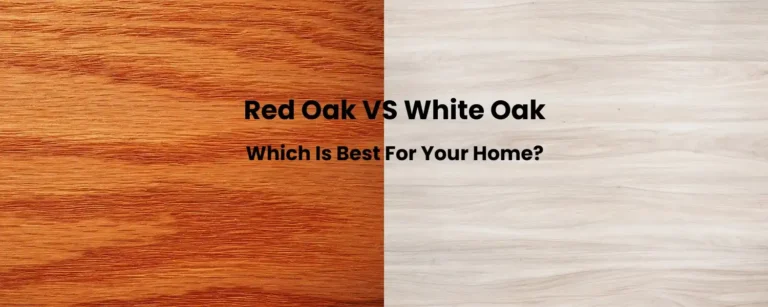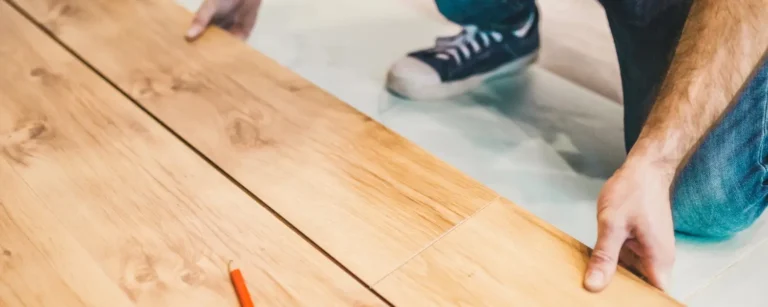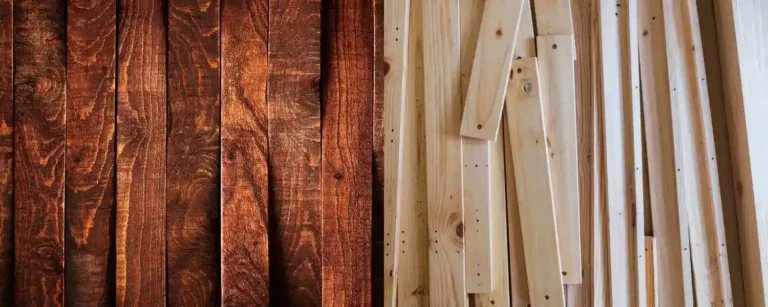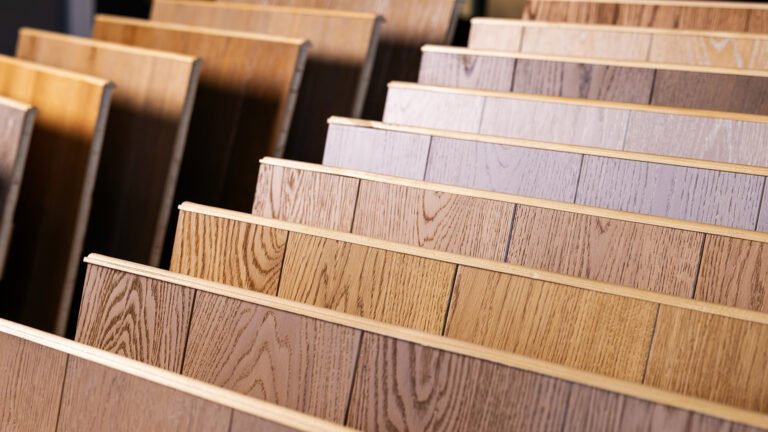Which is Better: LVT Vs Engineered Hardwood?
Are you caught at the crossroads between LVT vs Engineered Hardwood? Reveal the secrets of these luxury custom flooring titans as we guide you through the fine points, helping you confidently transform your living, room kitchen and even basement or bathroom floor space. Let’s journey into aesthetics, durability and elegance, ensuring your flooring decision smoothly reflects your style and practicality. Discover the unique specialty floor style that harmonizes with your lifestyle and dignifies your home. Let’s take off on this informative journey together.
What is Engineered Hardwood?
Engineered hardwood is a popular custom finished or pre-finished residential flooring option that combines the feel of real wood with innovative construction techniques. Unlike traditional solid hardwood, engineered hardwood enhances aesthetic appeal and structural integrity.
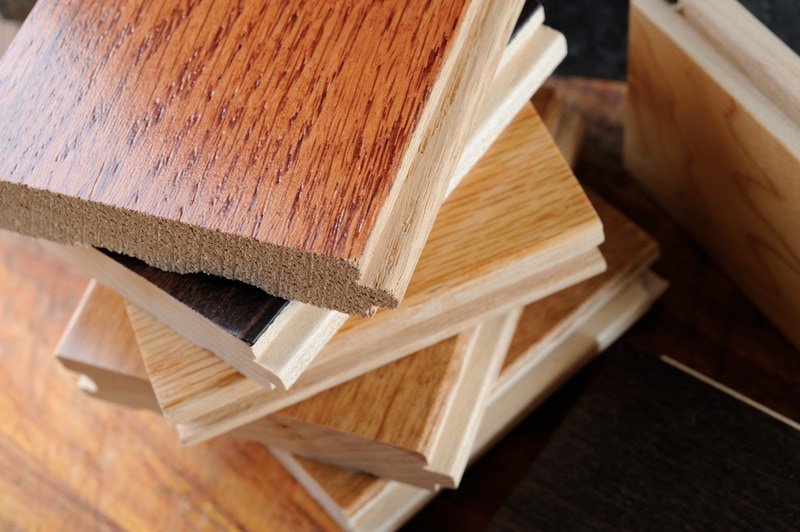
Layers of Engineered Hardwood
The engineered hardwood consists of three layers: the top veneer layer, the core layer and the bottom layer. The veneer layer is composed of authentic specialty wood grain pattern that can undergo sanding and refinishing. Below the veneer layer lies the core layer, which is cross-layered and bonded together using plywood or high-density fiberboard (HDF). This composition provides stability, prevents warping or shrinking and ensures the flooring retains its aesthetic appeal over time. Lastly, the bottom layer serves as a balancing agent, enhancing the overall stability of the engineered hardwood flooring.
Advantages of Engineered Hardwood
The advantages of engineered hardwood include:
- Durability: Engineered hardwood’s layered construction ensures a long-lasting, resilient flooring solution, making it highly durable.
- Moisture Resistance: Engineered hardwood shows excellent moisture resistance, making it suitable for installation in areas with high humidity or moisture levels.
- Ease of Installation: Homeowners can easily install engineered hardwood thanks to innovative click-lock or tongue-and-groove systems.
- Natural Beauty: Despite its engineered construction, this flooring option retains the natural beauty of wood, enhancing the aesthetic appeal of any space.
- Variety of Styles: Homeowners have various trending colors, patterns, styles, wood species and finishes from which to choose when selecting engineered hardwood flooring, allowing them to find the perfect match for their unique interior design.
Learn more about engineered hardwood flooring in our comprehensive post, “What is Engineered Hardwood Flooring?“
What is LVT?
LVT, short for Luxury Vinyl Tile, is renowned for its durability, versatility and aesthetic appeal. This type of flooring has a design that imitates the natural appearance of materials like ceramic or stone while offering advantages such as water resistance and easy maintenance.
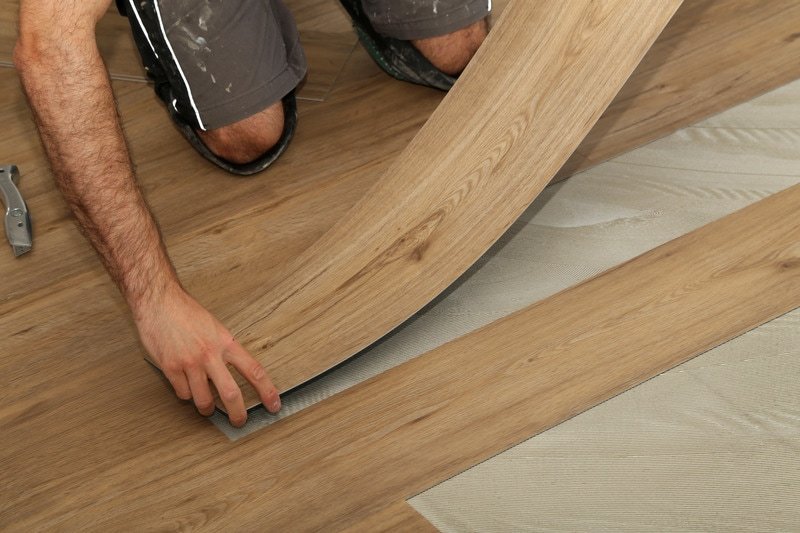
Layers of LVT
LVT consists of multiple layers to enhance its performance and durability. The topmost layer is akin to a transparent vinyl coat that protects against scratches, stains and wear. The second layer is the design layer, which features high-resolution images that replicate the look of natural material. The last layer is the core layer, which provides structural stability and support and prevents moisture.
Advantages of LVT
The advantages of LVT are:
- Durability: LVT is very durable. It can withstand heavy foot traffic and everyday wear and tear easily.
- Versatility: Its versatile design options allow for various styles, patterns and colors, allowing homeowners to obtain their desired looks easily.
- Water Resistance: LVT has excellent water resistance, making it suitable for installation in moisture-prone areas such as kitchens, bathrooms and basements.
- Easy Maintenance: With simple cleaning routines, LVT can maintain its pristine appearance without requiring specialized cleaning products.
Key Difference: LVT Vs Engineered Hardwood
| Aspect | LVT | Engineered hardwood |
| Appearance | Imitations of natural materials; come in various styles and patterns | Authentic hardwood appearance with natural grain patterns and texture |
| Cost | Comparatively more budget-friendly | Slightly more expensive than LVT |
| Size | Available in various sizes and shapes, including planks and tiles | Available in various widths and lengths |
| Installation | DIY-friendly options with multiple installation methods | Can be glued, stapled or floated |
| Durability | Resistant to scratches, stains and moisture | Durable but prone to scratches and water damage. Water-resistant, but NOT waterproof |
| Lifespan | Lasts 10-20 years with proper maintenance | Can last more than 30 years with proper maintenance |
| Environmental Impact | Made from synthetic materials | Made from real wood veneer |
| Maintenance | Minimal maintenance with vinyl-specific cleaner | Requires regular maintenance and occasional refinishing |
Appearance
Engineered Hardwood
Engineered hardwood showcases the beauty of natural wood. Its authentic grain patterns and rich textures add timeless charm to any space and create a warm and inviting environment.
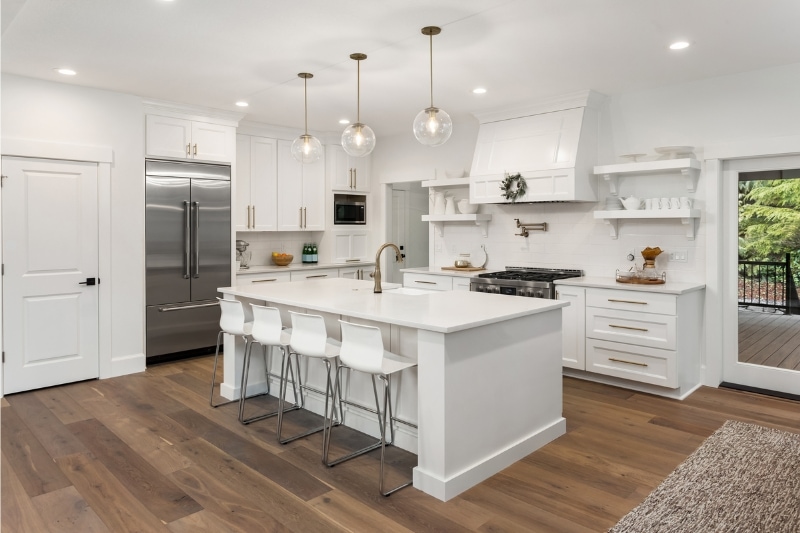
LVT
LVT presents a visually appealing alternative to traditional flooring materials. Its high-resolution images accurately imitate the look of natural materials such as wood or stone, offering a luxurious aesthetic at a fraction of the cost.
Which is the best? LVT Vs Engineered Hardwood?
Both options offer unique advantages. Engineered hardwood provides an authentic and timeless appeal with its luxurious natural wood grain patterns and textures. Meanwhile, LVT replicates the look but not the authentic rustic feel of natural materials. Although both choices offer distinct benefits, engineered hardwood is the premier luxury hardwood floor solution for those who prioritize authenticity, durability and aesthetic appeal.
Cost
Engineered Hardwood
Engineered hardwood initially costs more than LVT; however, in the long run, it proves to be more cost-efficient.
LVT
LVT is more budget-friendly than engineered hardwood. While the initial cost of LVT is lower, it’s essential to consider factors such as maintenance and replacement costs, which could ultimately increase the overall expense over time.
Which is the best? LVT Vs Engineered Hardwood?
When evaluating cost, engineered hardwood emerges as the superior choice for individuals prioritizing long-term value and durability. Despite the higher initial investment, engineered hardwood offers enduring beauty and resilience, making it a more affordable hardwood flooring option in the long run, and thus a more favorable option for homeowners seeking high-quality, long-lasting flooring.
Size
Engineered Hardwood
Engineered hardwoods are available in various plank sizes. The consistent sizing of engineered hardwood planks enhances the visual appeal of the flooring. It creates an elegant and captivating look throughout the space.
LVT
LVT, renowned for its versatility, offers a wide range of sizes and shapes, including planks and tiles, granting homeowners the flexibility to customize their design and layout. With multiple size options, LVT allows tailored adjustments to fit specific areas and design preferences.
Which is the best? LVT Vs Engineered Hardwood?
In terms of size, engineered hardwood presents a compelling choice for homeowners seeking a consistent and timeless look. While LVT offers versatile sizes and shapes, the enduring charm of engineered hardwood adds a warmer, cozier and more welcome touch to any space.
Installation
Engineered Hardwood
Engineered hardwood offers various DIY-friendly methods, such as glue-down, nail-down or floating installation, allowing homeowners to install it themselves and save on labor costs while achieving a perfect finish.
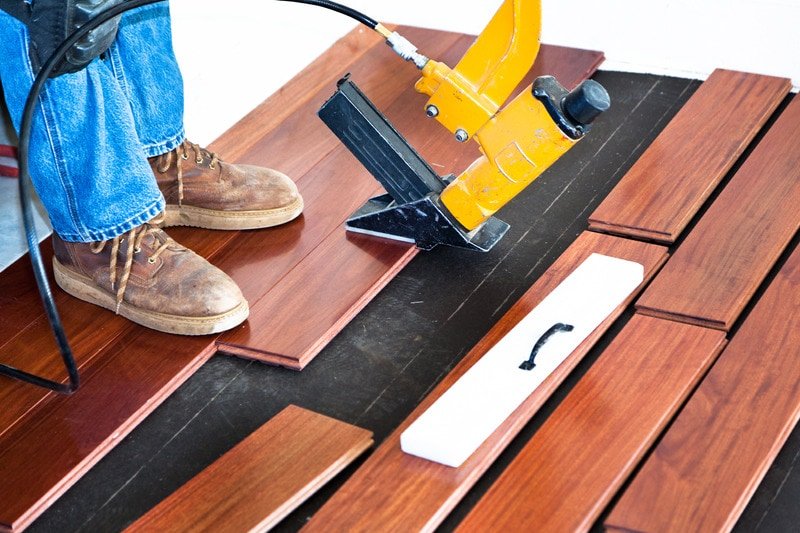
LVT
LVT, renowned for its user-friendly installation process, provides options like click-lock or loose-lay installation, making it ideal for DIY enthusiasts. Individuals can perform these simple techniques easily without the need for professional assistance.
Which is the best? LVT Vs Engineered Hardwood?
Both LVT and engineered hardwood offer DIY-friendly options. However, the various installation methods for engineered hardwood make it more convenient to install in multiple areas.
Durability
Engineered Hardwood
Engineered hardwood is highly durable due to its layered construction and real wood veneer. This construction enhances its structural integrity, making it resistant to scratches, dents and wear. Engineered hardwood can withstand high-traffic areas and is less susceptible to moisture damage than traditional hardwood.
LVT
LVT is resistant to scratches, stains and moisture. Its unique construction protects it from daily wear and tear, ensuring its appearance remains intact for years.
Which is the best? LVT Vs Engineered Hardwood?
When it comes to the decades-old debate between laminate vs. hardwood flooring, both LVT and engineered hardwood are remarkably durable options. However, the layered construction and real wood veneer of engineered hardwood are not just scratch-resistant and water-resistant but provide additional structural integrity and durability.
Lifespan
Engineered Hardwood
Engineered hardwood typically lasts 20 to 30 years or more with proper care and maintenance. Its durable construction and real wood veneer ensure longevity, allowing homeowners to enjoy its timeless beauty for decades.
Learn more in our comprehensive blog “How Long Does Engineered Hardwood Last?“
LVT
LVT generally lasts 10 to 20 years with proper maintenance. Its durability and resilience make it a reliable flooring choice for residential and commercial settings. With routine care, LVT can maintain its appearance and performance for many years.
Which is the best? LVT Vs Engineered Hardwood?
Regarding lifespan, engineered hardwood is the superior choice for homeowners seeking a long-lasting flooring solution. With a lifespan of 20 to 30 years, engineered hardwood easily outperforms LVT in durability and longevity.
Environmental Impact
Engineered Hardwood
Engineered hardwood boasts a minimal environmental impact as it originates from responsibly managed forests. Moreover, its durability and longevity reduce the need for frequent replacements, further minimizing its ecological footprint.
LVT
LVT exhibits a low environmental impact due to its synthetic composition and efficient manufacturing processes. Recycled materials produce many LVT products, thereby reducing their ecological footprint.
Which is the best? LVT Vs Engineered Hardwood?
Both flooring options possess a low environmental impact. However, engineered hardwood is the superior eco-friendly material choice for homeowners prioritizing durability, timeless elegance and sustainability.
Maintenance
Engineered Hardwood
To maintain its beauty and durability, engineered hardwood requires minimal maintenance. Regular sweeping or vacuuming to remove dust and debris and occasional mopping are sufficient to keep engineered hardwood floors looking their best.
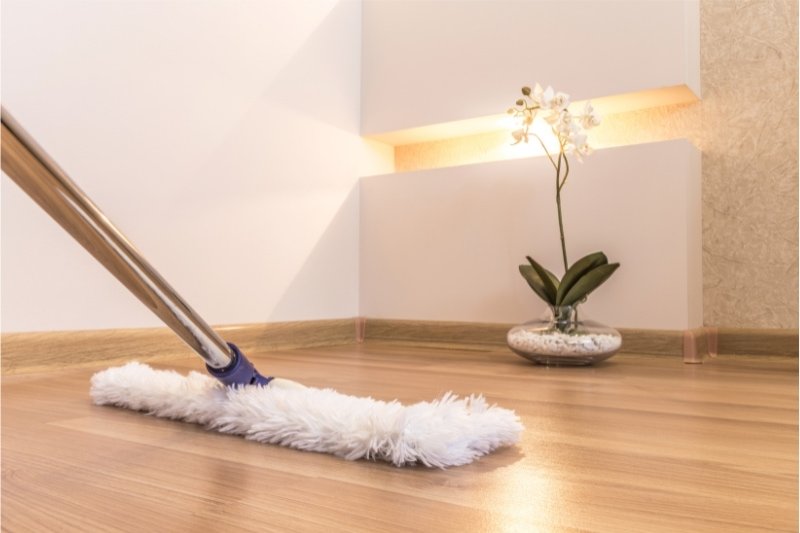
LVT
LVT is renowned for its easy maintenance, requiring simple cleaning routines to preserve its appearance. Regular sweeping and mopping are sufficient to keep the LVT clean. Additionally, LVT is prone to bubbling, so to prevent it, ensure the subfloor is dry and smooth before installation and follow proper installation techniques.
Which is the best? LVT Vs Engineered Hardwood?
Both LVT and engineered hardwood are relatively easy to clean and maintain. However, engineered hardwood offers the advantage of being sanded down to remove scratches and imperfections, providing durability and restoration that LVT may not offer.
Which Flooring Should You Choose? LVT Vs Engineered Hardwood
When homeowners decide between Luxury Vinyl Tile (LVT) and engineered hardwood, they can expect unique benefits. LVT is a cost-effective solution that requires minimal maintenance and offers diverse design options, making it well-suited for individuals who are mindful of their budget. In contrast, engineered hardwood boasts a timeless aesthetic and remarkable durability, positioning it as a highly favorable long-term investment. While LVT provides convenience and affordability, engineered hardwood truly shines with its enduring beauty and resilience, making it an appealing choice for those who value longevity.
Upgrade Your Home’s Aesthetics with Engineered Hardwood
When comparing LVT vs Engineered Hardwood, both options offer distinct advantages. LVT provides a budget-friendly solution with versatile design options and easy maintenance. At the same time, engineered hardwood stands out for its timeless elegance and excellent durability. Engineered hardwood flooring enhances the aesthetic appeal of any space with its authentic grain patterns and textures, offering long-term value and resilience. It can withstand wear and tear while maintaining its beauty for decades, making it the superior choice.
When choosing flooring, consider contacting Villagio Wood Floors, a leading wholesaler of engineered hardwood flooring. We offer a wide range of high-quality engineered hardwood designed to meet the diverse needs of retailers and homeowners. With our engineered hardwood, you can enhance the beauty and value of your home. Explore our collection today! For more information or to place an order, contact us or call us at +1 (888) 488-3331.
LVT Vs Engineered Hardwood – FAQs
What are the disadvantages of LVT flooring?
While Luxury Vinyl Tile (LVT) offers many benefits, it’s essential to consider some potential drawbacks. One major disadvantage of LVT flooring is that it can be prone to denting, especially in high-traffic areas. Additionally, LVT is subject to air or liquid bubbling, which can occur if the installation is not done correctly or if there is moisture beneath the flooring.
Do high-end homes use LVT?
High-end homes typically do not use LVT because their owners often prefer natural materials like wood, stone or tile for their luxury and authenticity.
Does LVT reduce home value?
The impact of LVT on home value can vary depending on factors such as the quality of the LVT product, its installation and the preferences of potential buyers. While LVT can provide durability and versatility, most savvy high-end homebuyers prefer natural materials like engineered hardwood.


